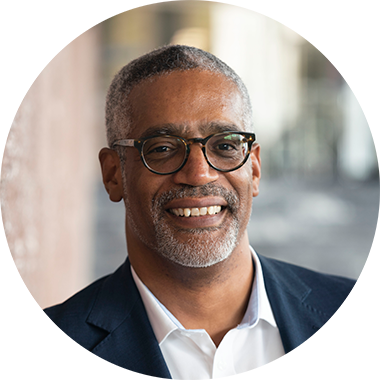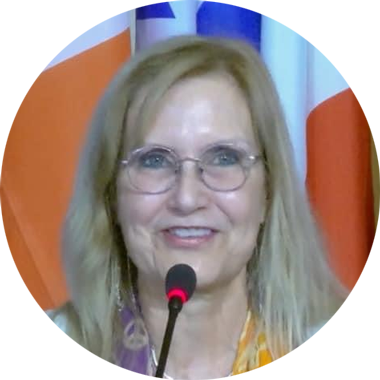
Derrick Muneene
Unit Head, Capacity Building and Collaboration
Headquarters, Switzerland
“My mother is a giver,” Derrick Muneene explains when asked about his inspiration. “I saw her reach out to help friends who needed school supplies in Lusaka, where I grew up, and help mothers in the street. The lessons learned by example were about reaching out to the vulnerable and about serving the community. I saw the effect of HIV/AIDS around me and the associated stigma. I could see a need for privacy, which to me meant we needed some sort of person-centric technologies to support health literacy and a privacy mechanism. We have those now with mobile phones, but back in the late 90s, just after I finished high school, the world didn’t yet have smart cards and health systems were not yet digital.”
Derrick studied computer science in Zambia and went on to pursue a master’s degree in both computers and public health. He had his own agenda for tying the two together to serve the community with technology. After his studies, he started eHealth projects for the Ministry of Health through a CDC country office collaboration. This was an innovative way to sponsor community health projects with foreign aid in Zambia at the time. Derrick and his team were striving to influence people’s health behaviour using chips embedded in plastic small cards for expectant mothers to store their historic medical data. This helped with pre-natal and continued care and showed promising potential. As HIV cases rose to epidemic proportions, Derrick continued developing software tools to support the ministry’s response. This included an electronic antiretroviral medical record databases and laboratory software for the related national programme.
Derrick's other passion is communication and information; he wants people to be in charge of their own path. He explains, “By gathering data, we can influence decisions to develop these technologies and then make them available, but then the health care professionals and other users need to know why they are needed and how to use them.” Understanding and communication has to go all the way through the chain, right to the people on the street who are using the programmes. He saw first-hand the impact of using digital records, for example pharmacists reviewing past medical records efficiently. Later, the team developed smartcard patient records for digital platforms and apps that provided the insights needed by the decision makers.
With several years of government programme experience, he successfully applied to work at WHO’s regional office for Africa, where he worked on eHealth and mHealth projects and built bridges with the UN International Telecommunications Union and their standardizations programmes, soon to be renamed as the Digital Health for Africa Programme. Today he leads a digital health team for capacity building and collaboration at WHO Headquarters. The team works to position digital health as a critical enabler for access to health services and other health interventions, especially in the context of health emergencies and universal health coverage. This means enabling countries to establish a digital health environment through capacity building and supporting countries to provide remote access to services via mobile phones, for example telemedicine or using self-monitoring tools from a patient’s home. His team’s work has been recognized as especially critical during the COVID-19 pandemic.
The lessons learned by example were about reaching out to the vulnerable and about serving the community.
He remembers his WHO interview in a roadside restaurant during a journey back from an HIV/AIDS clinic in a remote district. It was a pivotal moment hinging on a fragile mobile connection and one that led him from Lusaka to Brazzaville, and then to Geneva. It’s the same mobile connection that today provides tools to people that would otherwise not be able to visit a clinic or know their results of a test, and it has a big future in public health.
Many years before, Derrick trained nurses on how to use computers to record and print out patient data. After the training, the nurses were proficient and could explain it to their patients. The mothers themselves were able to understand the importance of having their records computerized, which was critical to better health care. He remembers one patient amiably waiting while they rebooted a computer system so as not to miss updating his chip with the latest medications dispensed. It’s this understanding that Derrick sees as key. It’s not just the technology; it’s this level of participation from patients that’s necessary to WHO’s work on global digital health.
More and more programmes are now being provided virtually. Derrick's team focuses on improving public access to health services by equipping health workers and patients with the ability to use digital tools such as mobile phones and other health related gadgets. To do this, the team supports countries with digital learning content and capacity building mechanisms to revise or develop policies and strategies on digital health so as to leave no one behind. The team is also involved in supporting upcoming technologies such as artificial intelligence to prepare for future pandemics.
Derrick emphasizes that technology impacts almost everything we do today, including seeking health services, education, buying goods and services, banking and more. To be effective, WHO needs to be ahead of the curve and support countries with evidence-based technology tools while ensuring that these technologies are sustainable, equitable, safe and put people first.


